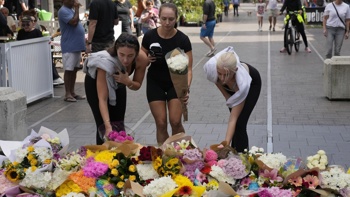The Early Childhood Council says a new pay deal could result in problems within the sector.
Kindergarten teachers have been offered pay parity with school teachers after four days negotiating with the Ministry of Education.
The new pay offer would also see union members get a one-off lump sum of $1500.
Under the settlement negotiated by NZEI Te Riu Roa, kindy teachers would get pay parity with primary and secondary school teachers, with the same pay increases and unified pay scale that primary teachers accepted in their settlement.
That means teachers at the top of the basic scale would see an 18.5 per cent pay hike by July 2021
Head and senior teachers' pay would also go up, with the head teacher allowance incorporated into the pay rate.
The settlement would also include changes to tea time and lunch breaks and a commitment to Te Tiriti o Waitangi. Union members will vote on the offer on July 25.
The offer would cost the Ministry of Education $75.3 million over three years, said the ministry's deputy secretary Ellen MacGregor-Reid.
"This is a very good offer which is comparable to the offer primary teachers accepted," she said.
Lead negotiator Virginia Oakly said the proposed settlement (PDF) didn't address all the unions' claims, particularly around workload, expertise allowances and career pathways.
"However, it does include parity with the compulsory sector and the pay increases that primary teachers fought very long and hard for. It will be up to members to decide whether that is enough to settle for, or if they want to fight on," she said.
Council chief executive Peter Reynolds told Mike Hosking the dispute could result in some getting a pay increase and others not.
"We've got quite a number of early childhood teachers working across the childcare centre. Only a few of them work at kindergartens, you've got people who work part time in a kindy and par time in childcare centre."
He says the government won't hand on any increase to them - so they'll have to pass on cost to parents.
"They'll have to put up fees, but some of them won't be able to do that as they work in communities where there is simply no affordability amongst the parents."
Meanwhile National's early childhood spokeswoman Nicola Willis says a critical shortage of qualified teachers is forcing many preschool centres to hire unqualified staff.
The numbers of unqualified staff in early childhood education (ECE) leapt by 55 per cent in the past four years, from 6427 in 2014 to 9951 last year, while qualified ECE teachers increased by only 14 per cent, from 18,857 to 21,467.
The numbers of children enrolled in ECE was virtually static over the same period, rising only 0.3 per cent from 200,002 to 200,588.
The number of ECE services increased by 6 per cent, from 4299 to 4563, as mainly private early childhood centres proliferated especially in fast-growing centres such as Auckland.
Willis said it was good that parents now had more centres to choose from, but they needed qualified teachers.
"I can remember a time when parents struggled to get a place in an early childhood service. That is less likely now," she said.
But she said the number one concern she saw when she visited centres was "the dire and growing shortage of qualified teachers to staff our ECE services".
"This is putting pressure on ECE centres with some experiencing problems including struggling to replace staff, being forced to rely on relievers, growing teacher to child ratios, and employing fewer qualified staff," she said.
She had launched a survey of all ECE services to assess the extent of the staffing shortage.
Take your Radio, Podcasts and Music with you









